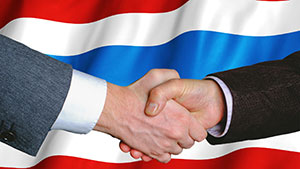 Business entities which are majority or wholly foreign-owned are restricted from investing on certain business types in Thailand. If they are to operate on these activities, they will be required to obtain a Foreign Business License.
Business entities which are majority or wholly foreign-owned are restricted from investing on certain business types in Thailand. If they are to operate on these activities, they will be required to obtain a Foreign Business License.
One of the laws that provides for these restrictions is the Foreign Business Act B.E. 2542 (1999). The aforementioned law identifies business activities in Thailand and grouped these into three (3) different types.
- Group 1 – These are types of businesses that are “not” open for foreign enterprises.
- Group 2 – These are types of businesses that are open for foreign enterprises but under certain conditions and the permission to do so comes from the Cabinet.
- Group 3 – These are types of businesses that are “not yet” open for foreign enterprises and permission to do so comes from the Director-General of the Commercial Registration Department.
What makes a company a foreign business entity?
A business entity with foreign ownership of 49% and below is classified as a Thai company. Yet, if a company is 49% and above or wholly owned by foreigners, this will be identified as a foreign business entity thus the need for it to obtain a Foreign Business License first before they can operate on a business activity.
Are exemptions present?
Restrictions will not apply in two ways:
- The company must qualify under the terms of the Thailand-United States Treaty of Amity where majority of the shareholders and the director of a company should be American citizens in order to qualify.
- Through the Thai Board of Investment (BOI). If a majority foreign owned-company gets promoted by the Board of Investment, restrictions will also not apply.
How should the application for a Foreign Business License go?
The process should begin with the foreign company filing its application with the Commercial Registration Department. There, the Cabinet or the Foreign Business Committee, whichever the case, will conduct a review on the application.
Their reviews will be based on how such foreign business activity affect the safety and security of Thailand, its economic and social development and how it will provide employment to local labour among other considerations. They will check whether such foreign business activity will provide more good than harm and whether it helps in the protection and promotion of Thai interests.
When the application is reviewed, it does “not” mean that it is already approved. Denial for a Foreign Business License is still possible although as it is also a highly complicated procedure that can take much time before a resolution on the application will be reached.
